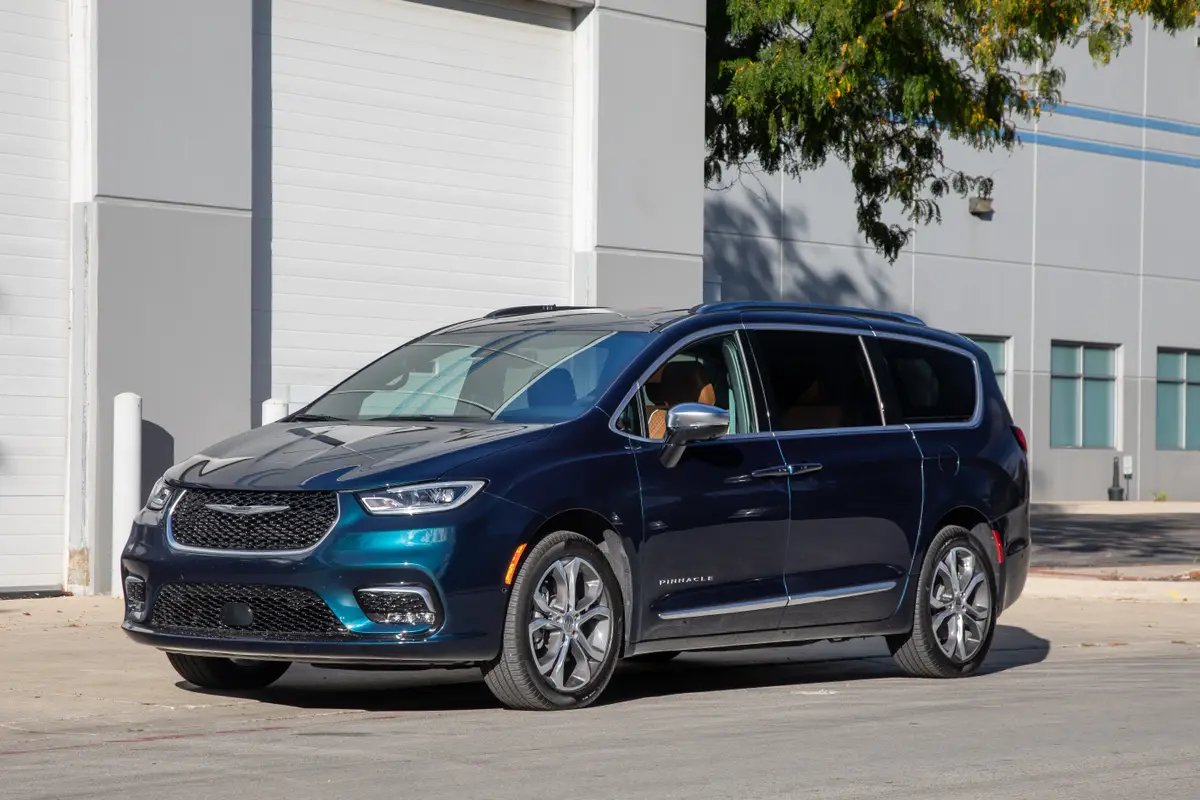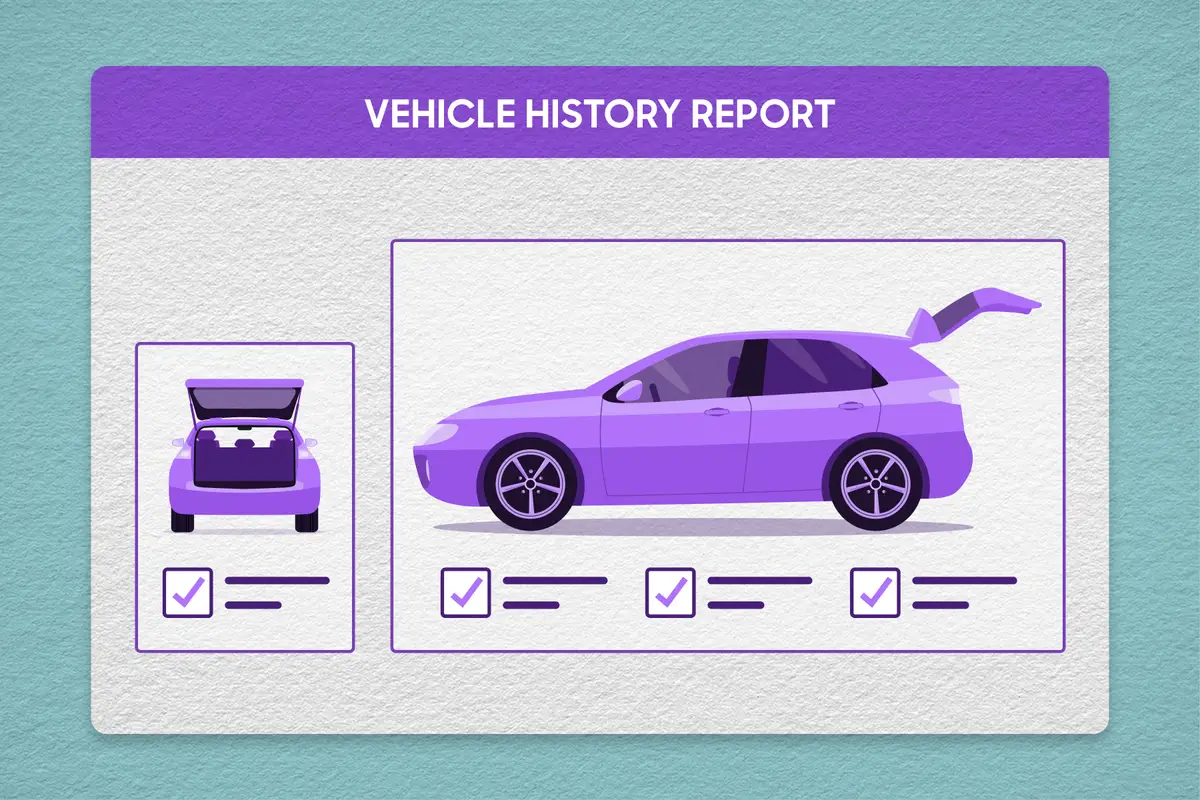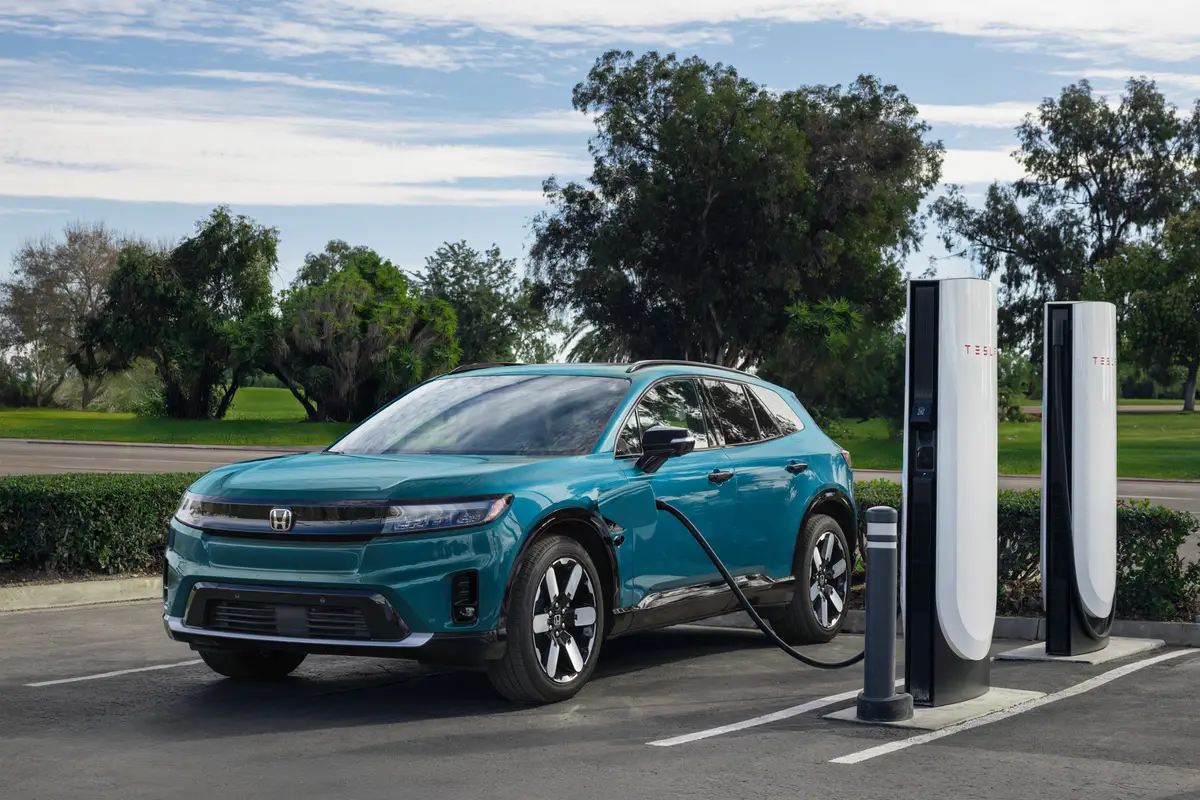The Toyota Camry TRD Is Surprisingly Good but Stripped of Features

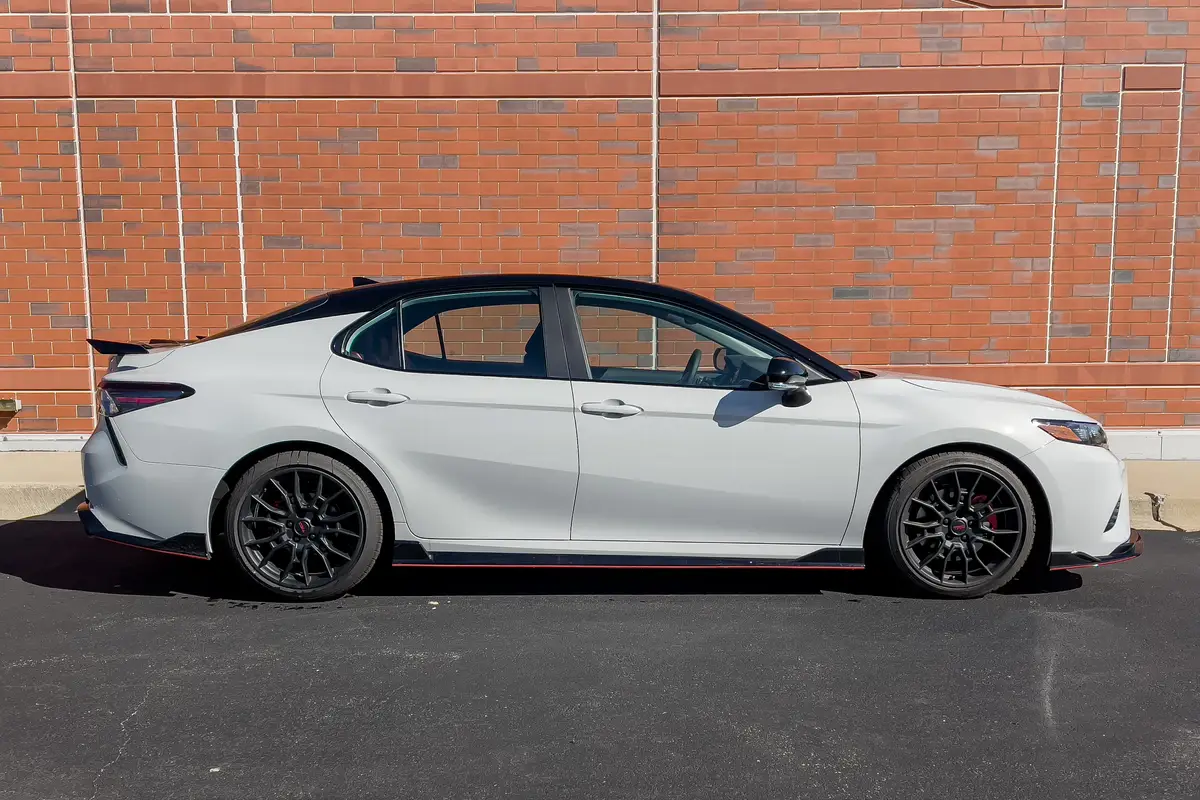
It may be surprising, but the Toyota Camry TRD is quite good at its seemingly oxymoronic mission of transforming the Camry — at one time the definition of beige — into an exciting handling machine. The Camry TRD isn’t good solely on the merits of being a Camry; its surprising grip and handling neutrality is respectable even compared with luxury sports sedans like the BMW 3 Series or Acura TLX. While the Camry TRD is the least expensive way to get a 301-horsepower V-6 Camry, it comes at a cost that isn’t measured in dollars: It’s a stripped version with fewer convenience features compared with the Camry XSE V-6. The 2021 Camry TRD I recently drove felt hollow inside, more like a base trim level Camry than a $33,000 one, which is why I wanted to review the lengthy list of what you don’t get for your money:
What You Sacrifice in the Camry TRD Vs. the Camry XSE V-6
Only one omitted feature, as noted, can be added back as an option if desired:
- No moonroof
- No wireless charging
- No dynamic gridlines on backup camera
- No heated seats
- No heated steering wheel
- No backseat console air vents
- No folding backseat
- No backseat armrest with cupholders
- No ventilated seats
- No head-up display
- No 360-degree camera
- No auto-dimming rearview mirror
- The XSE’s standard 9-inch touchscreen with JBL sound system is optional for the TRD
- Only single-zone climate versus the XSE’s dual zone
- Standard 4.2-inch instrument cluster information display versus the XSE’s 7-inch
- Imitation leather with fabric inserts versus leather-trimmed seating
Striking all those features, the Camry TRD is $3,360 less than an XSE V-6 ($36,540 versus $33,180, including destination charges), so there are savings, but the deleted features aren’t enough to make the final product (with all other modifications) considerably lighter, just 10 pounds less than the XSE’s 3,585 pound curb weight. The interior quality is also more in line with a Camry SE or LE versus the better-appointed versions of the XLE and XSE.
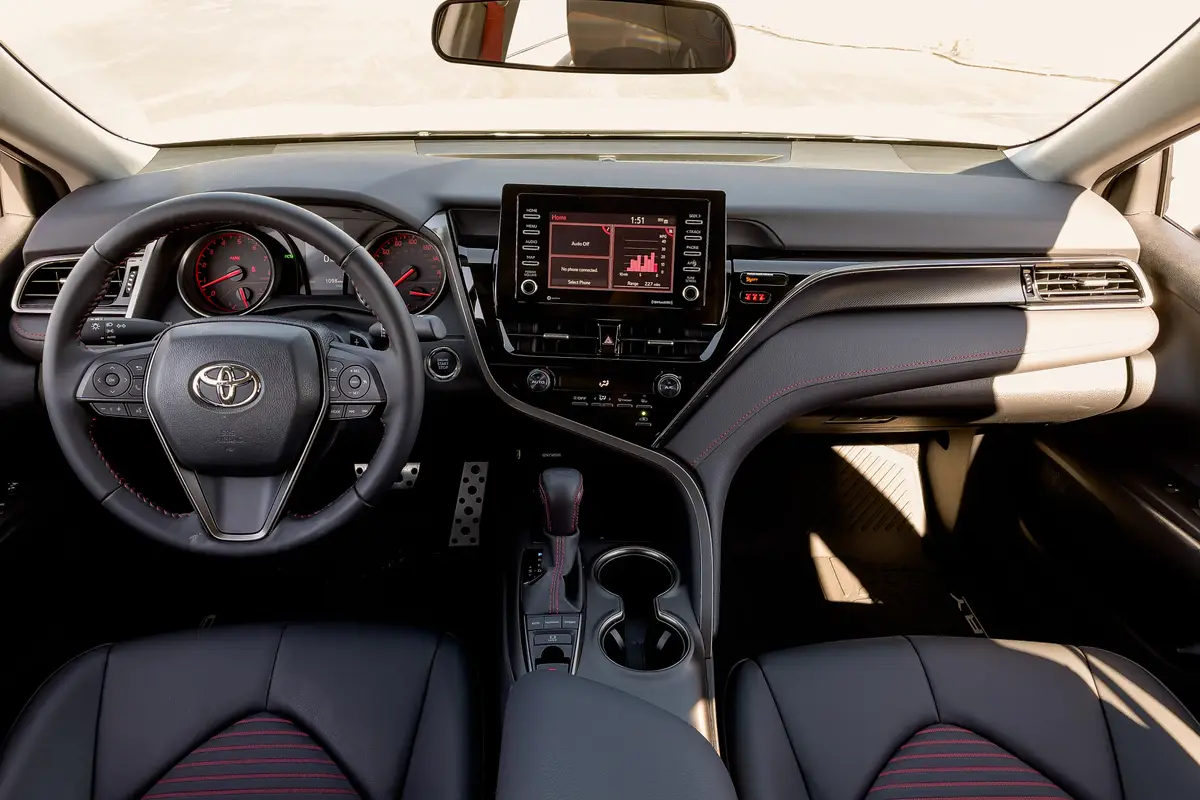
What You Do Get
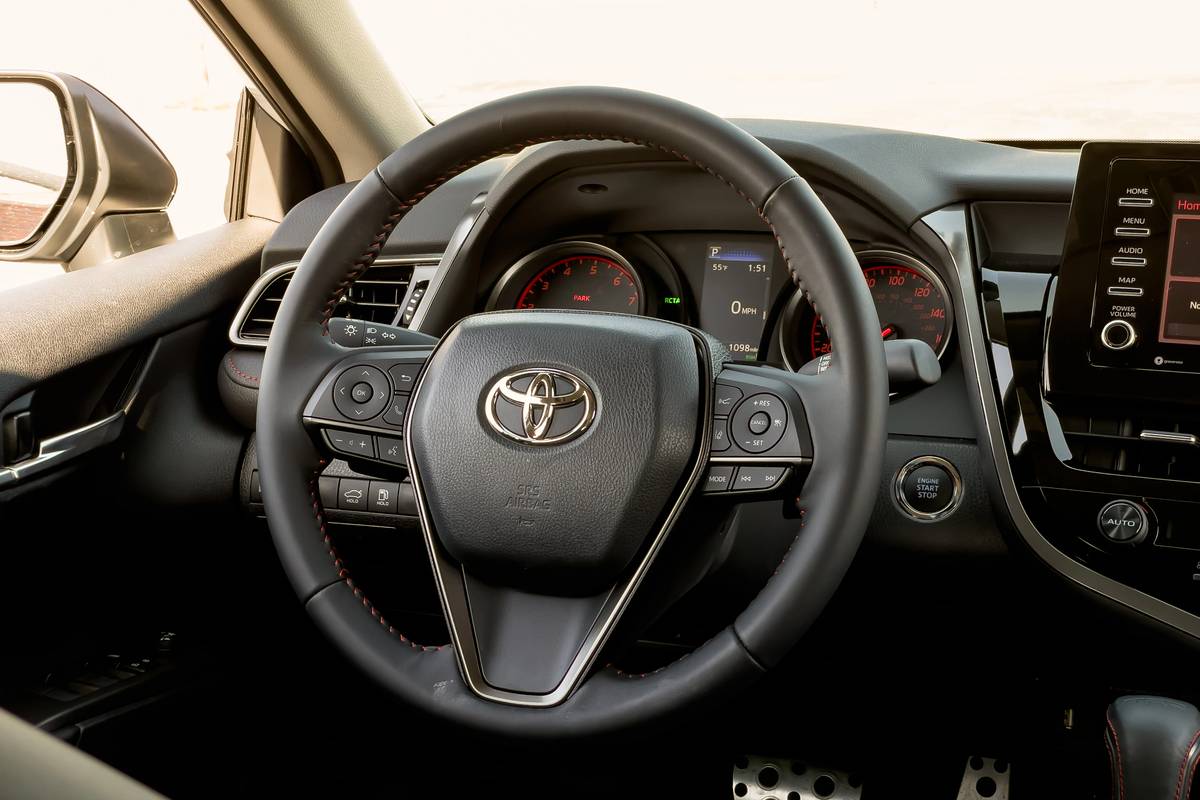
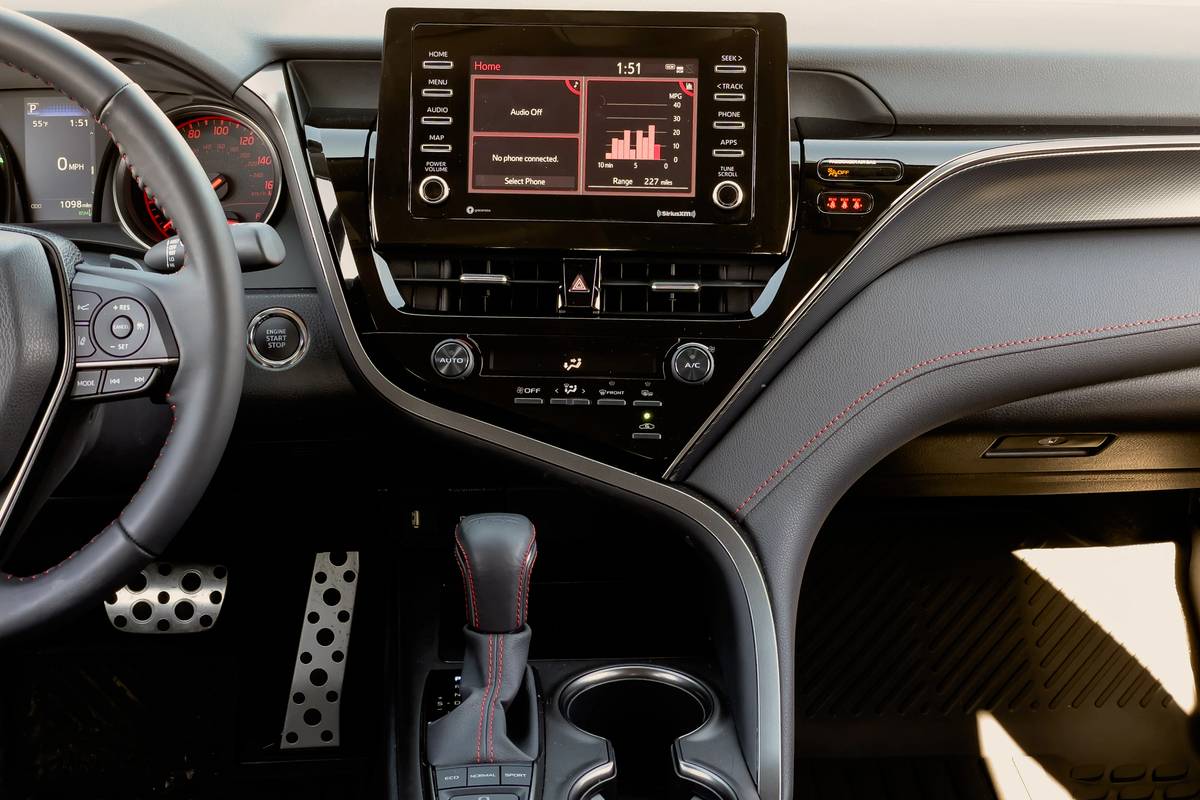
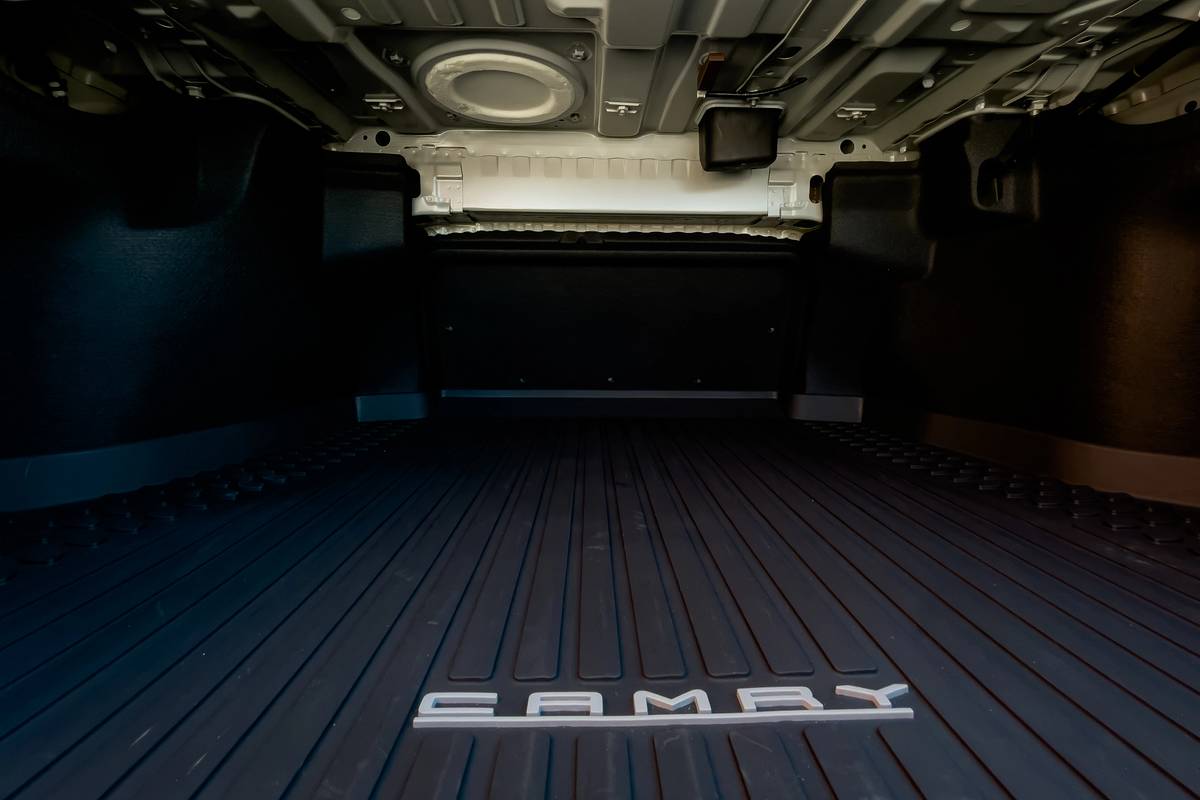
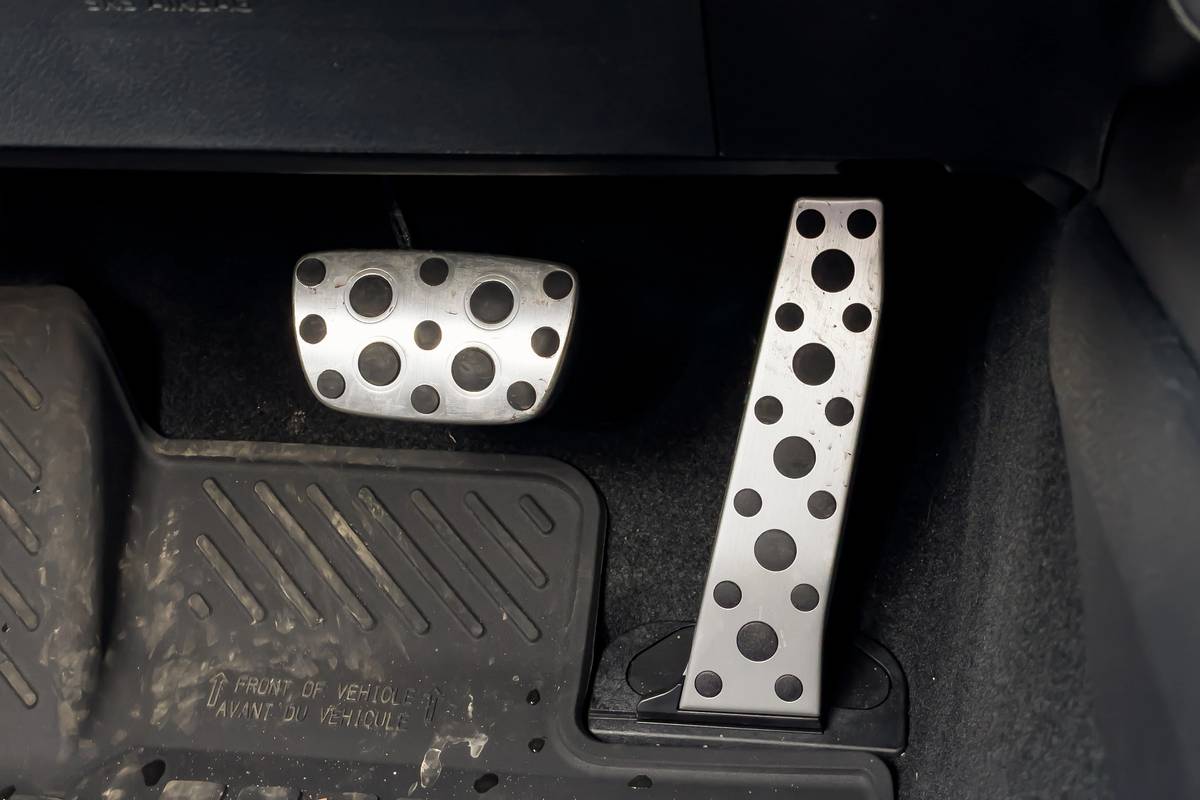
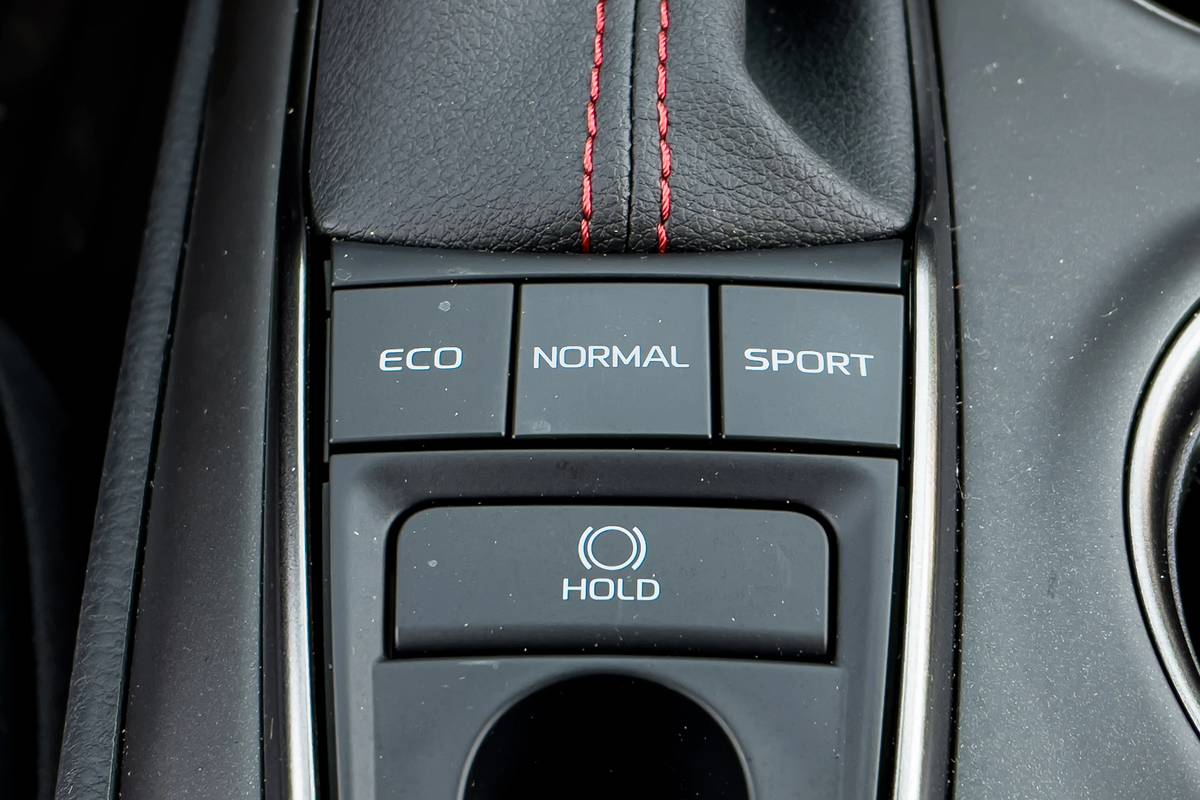
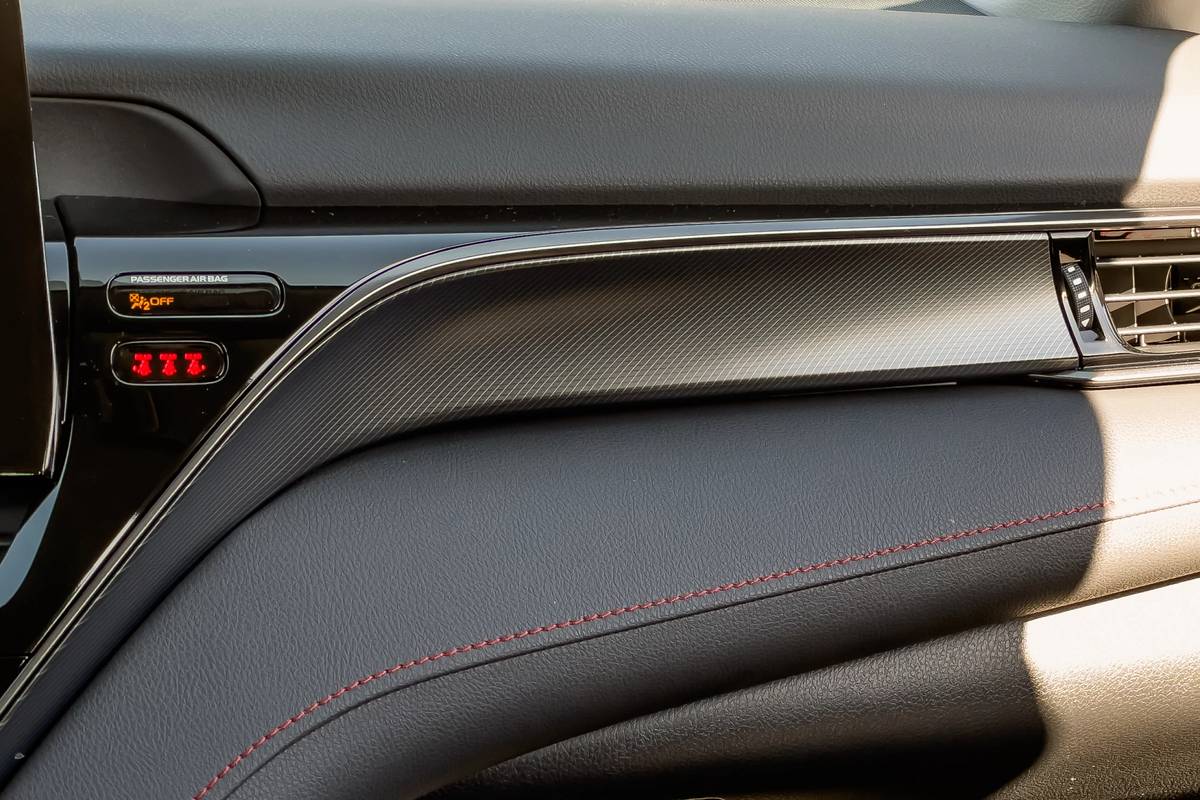
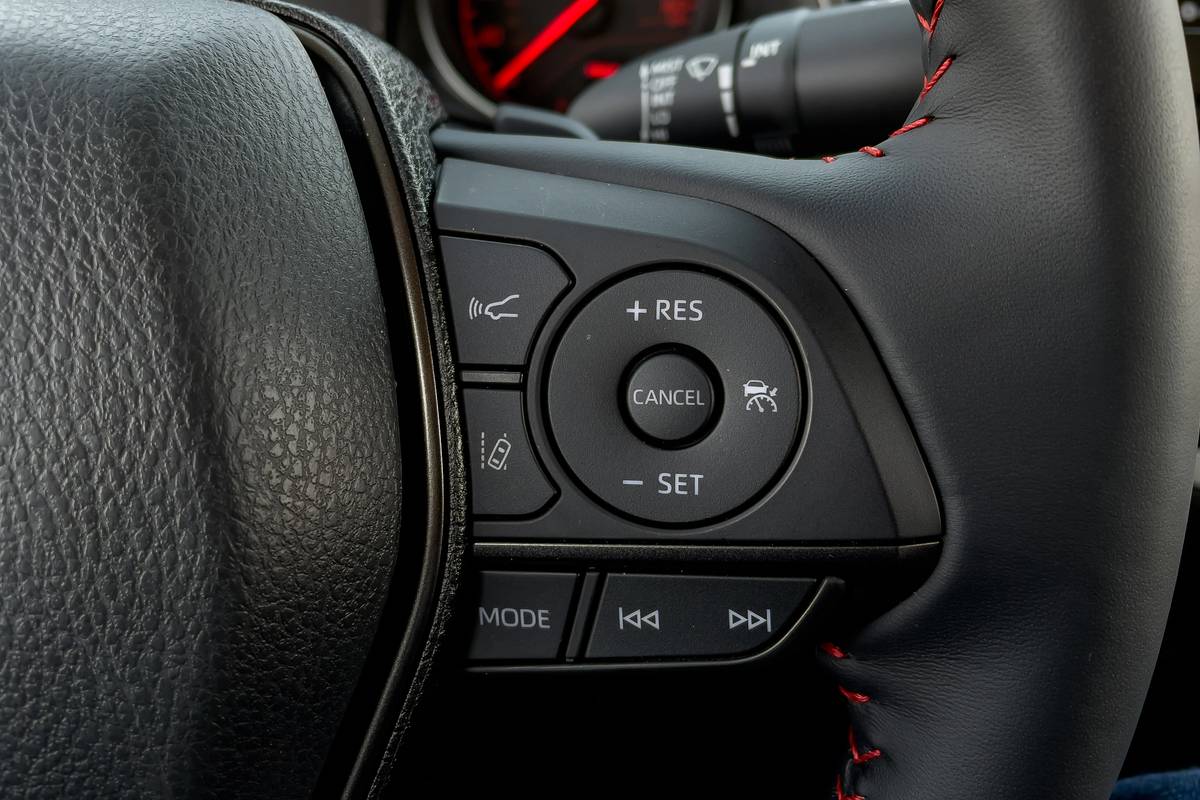
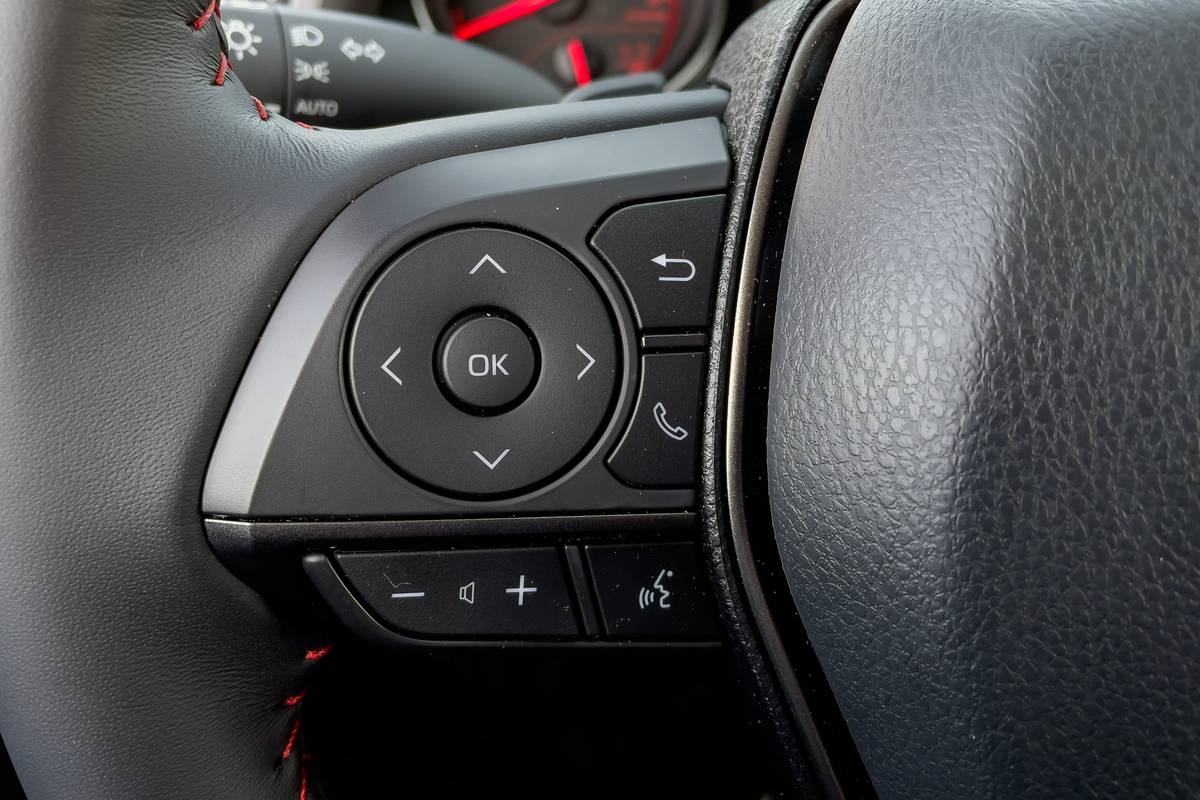
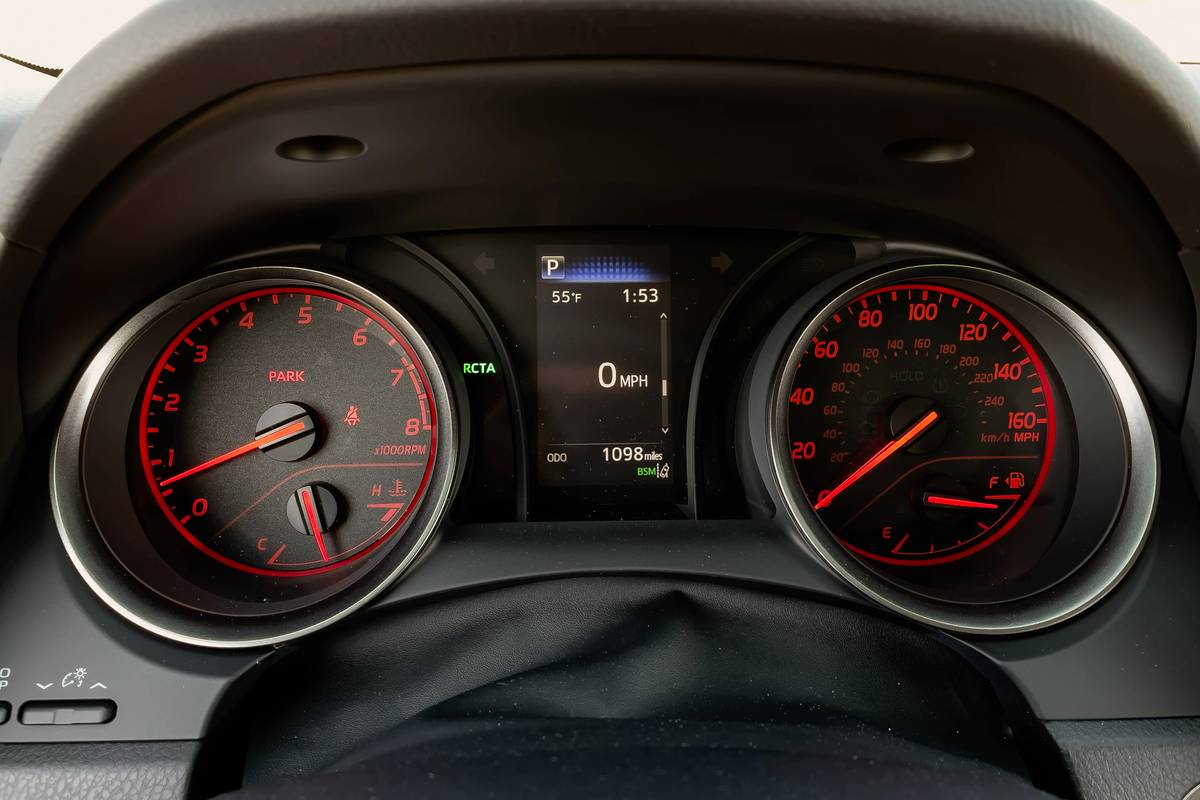
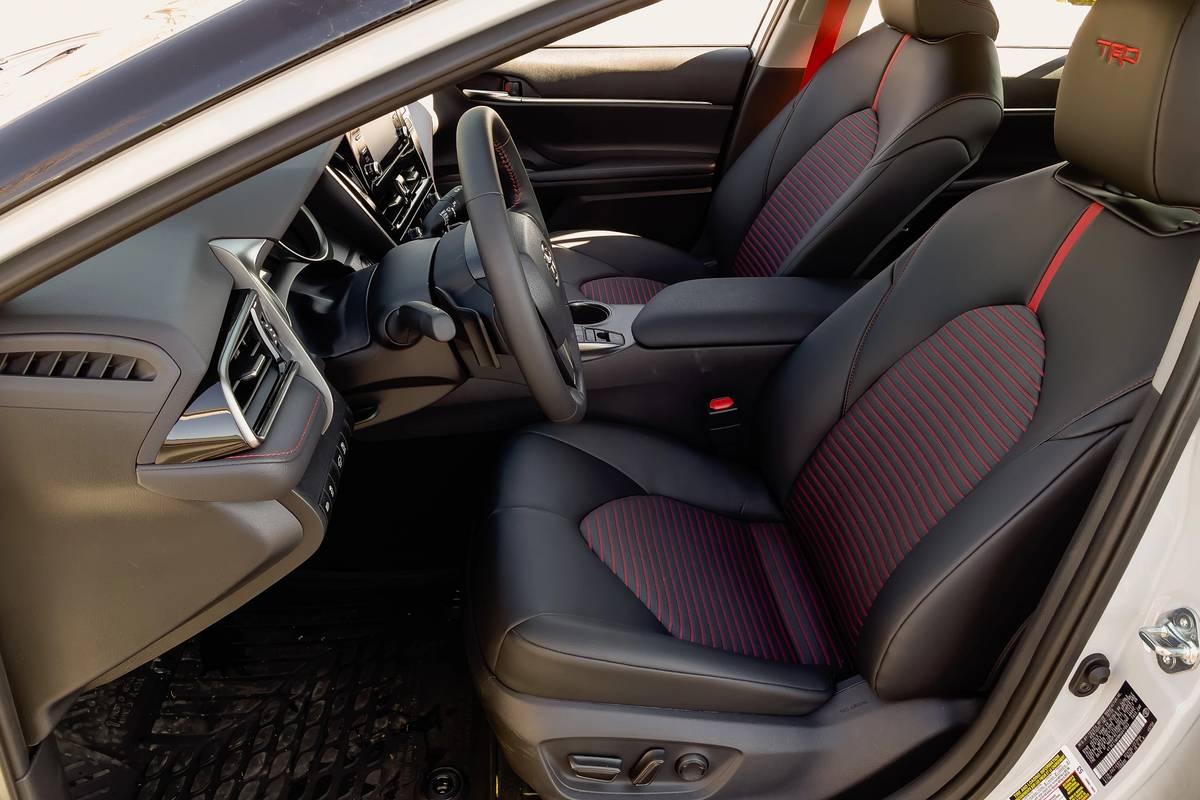

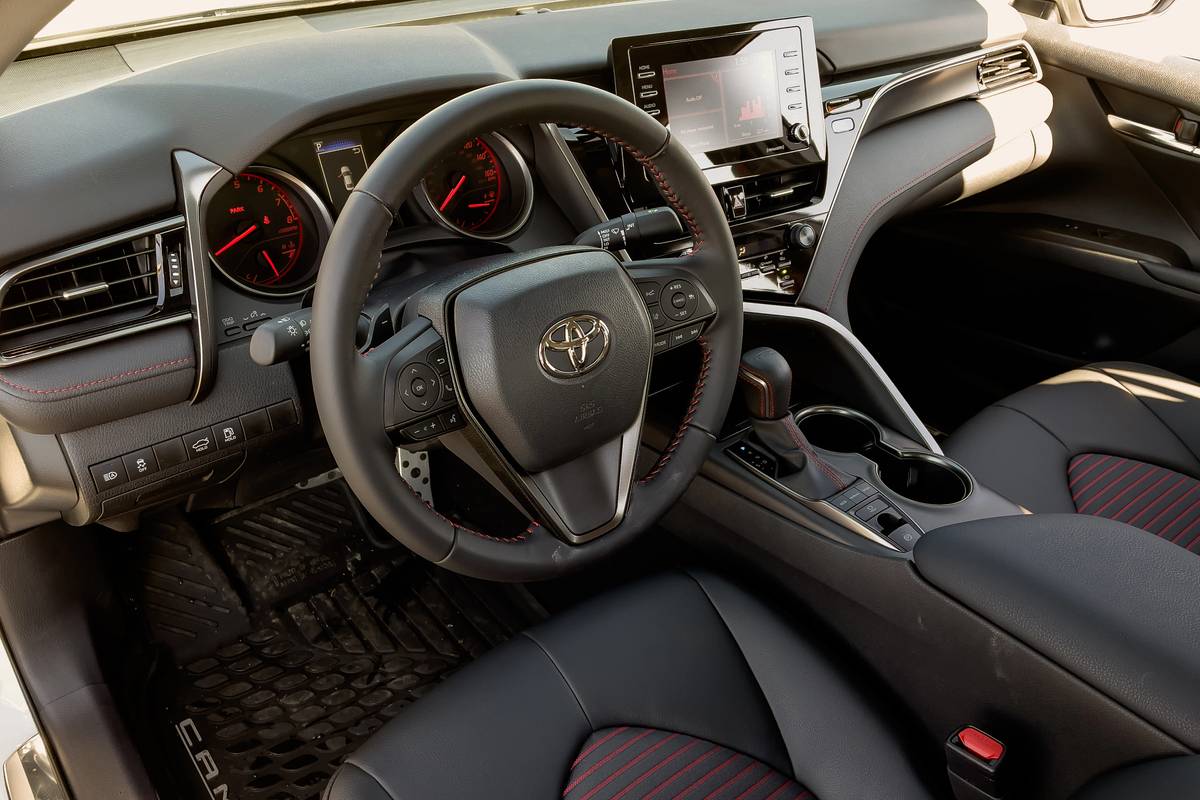
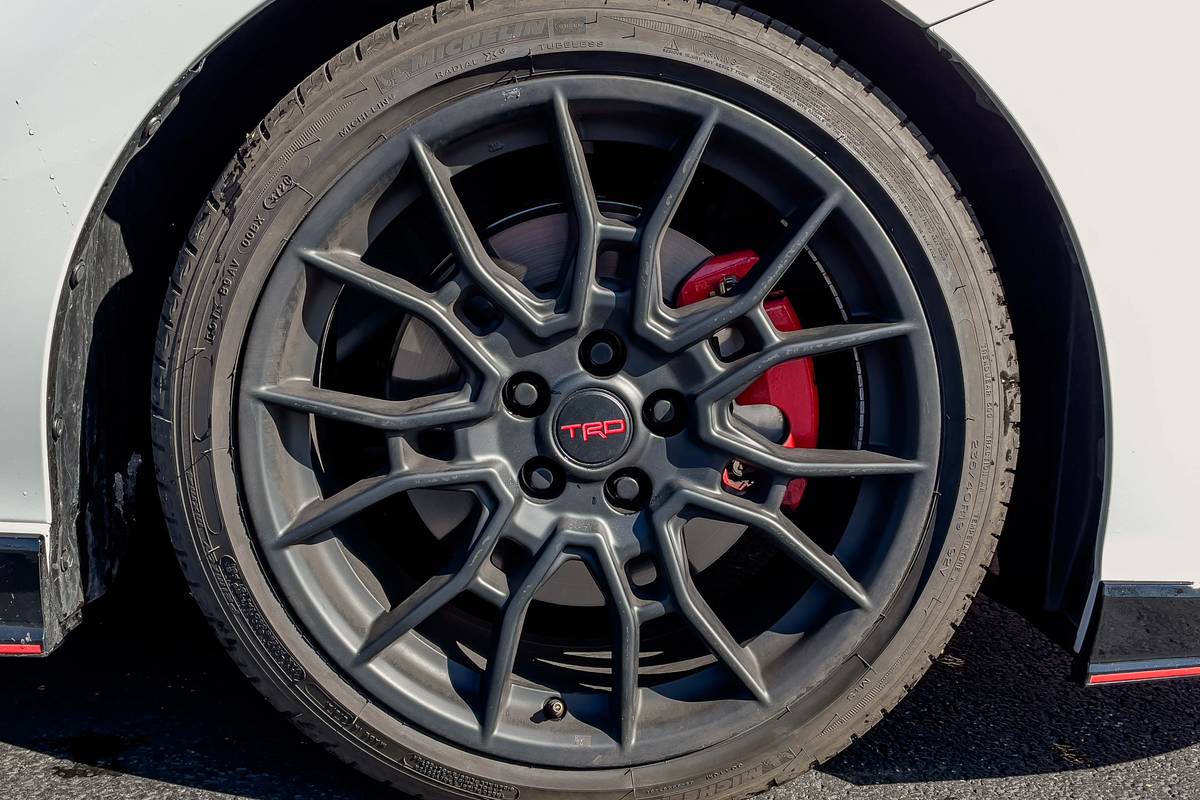
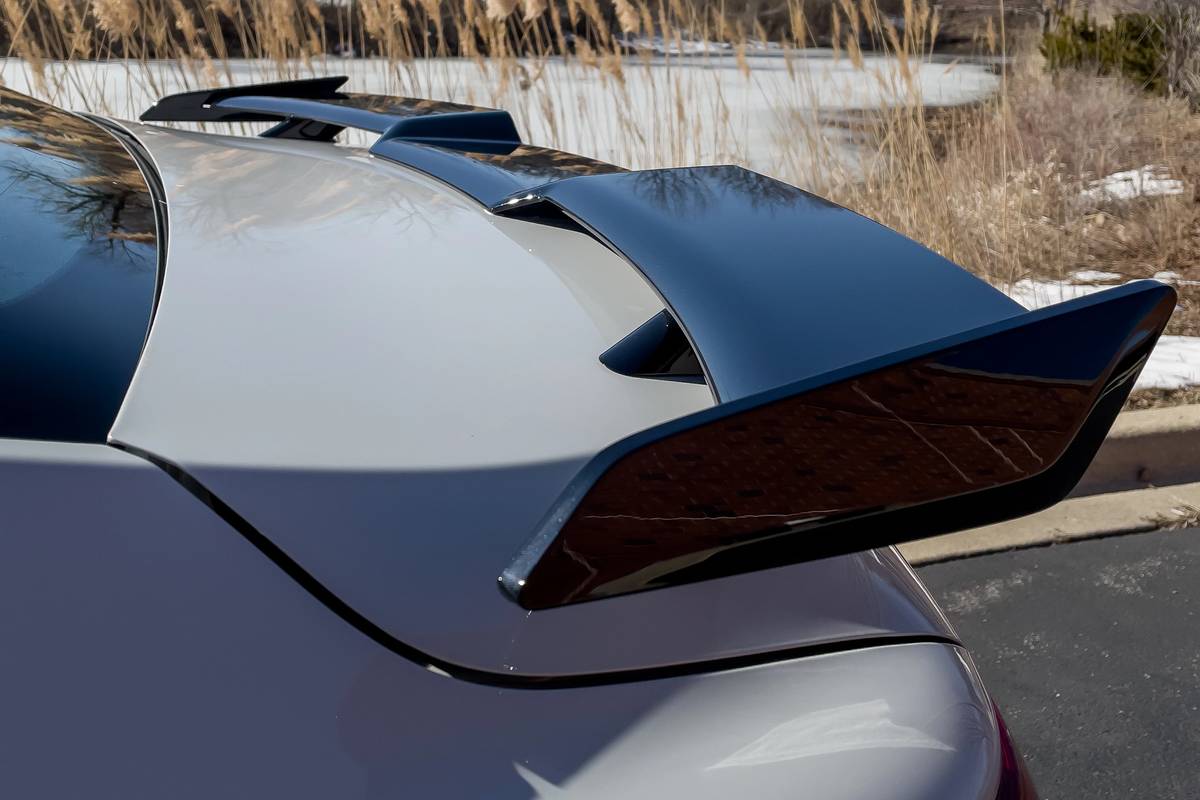

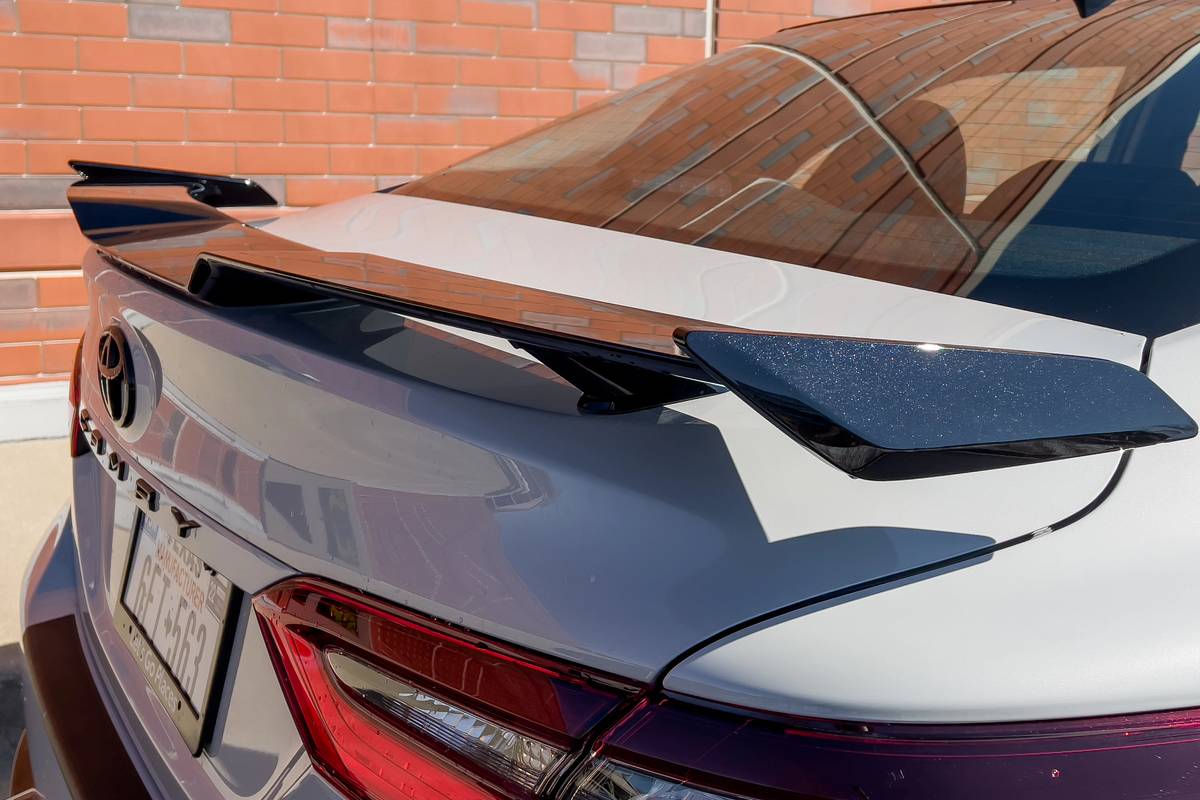
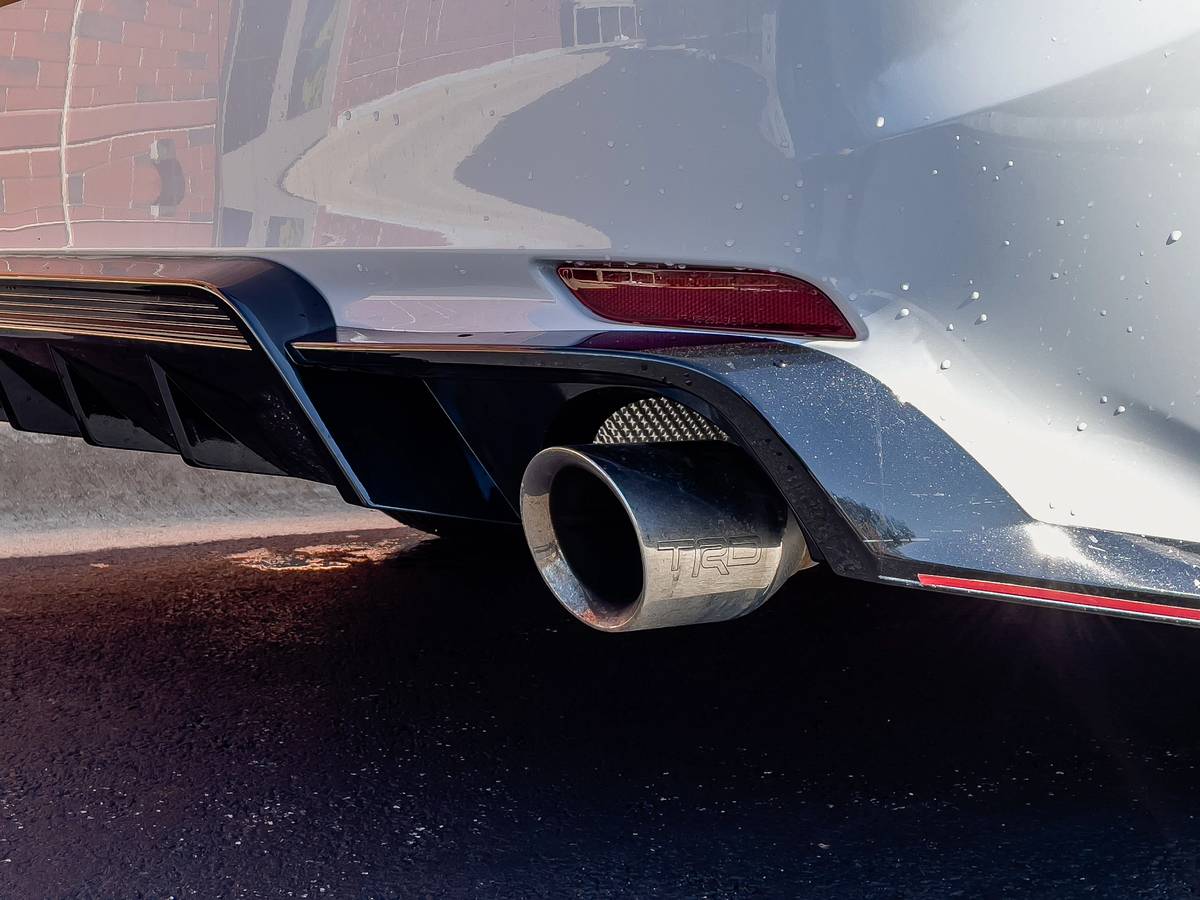
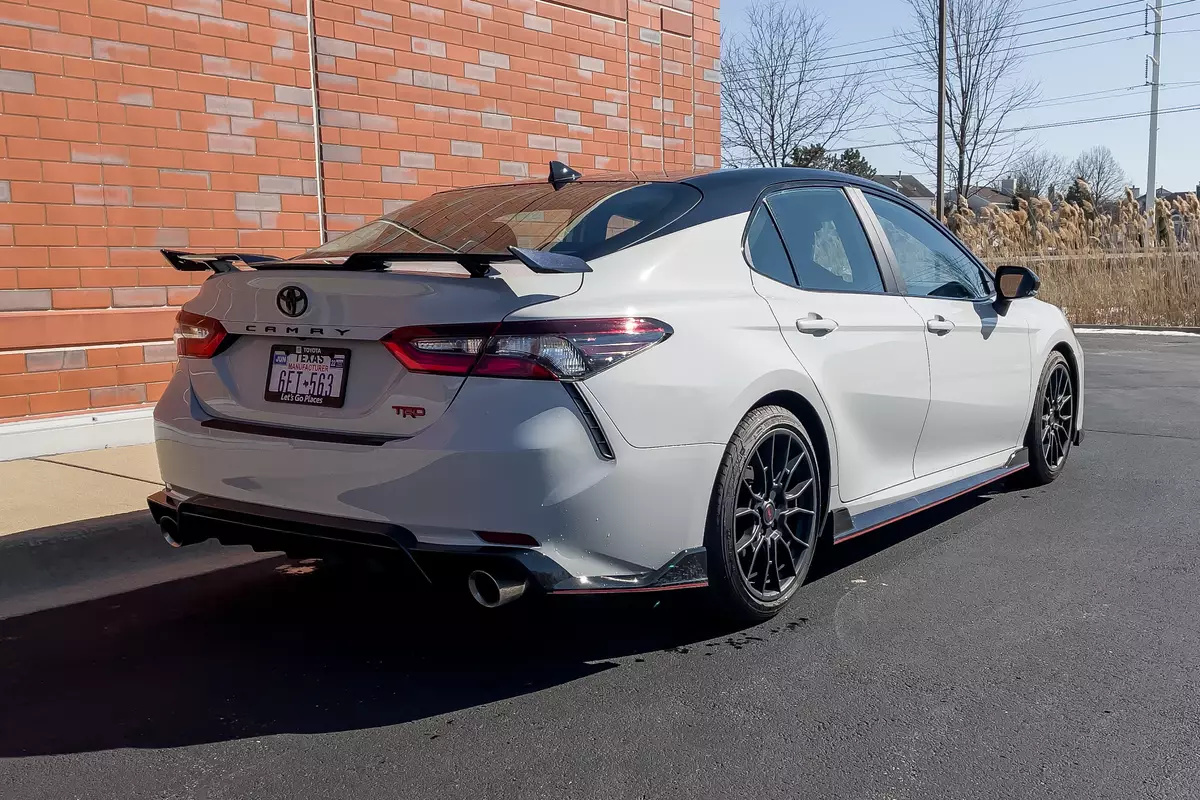
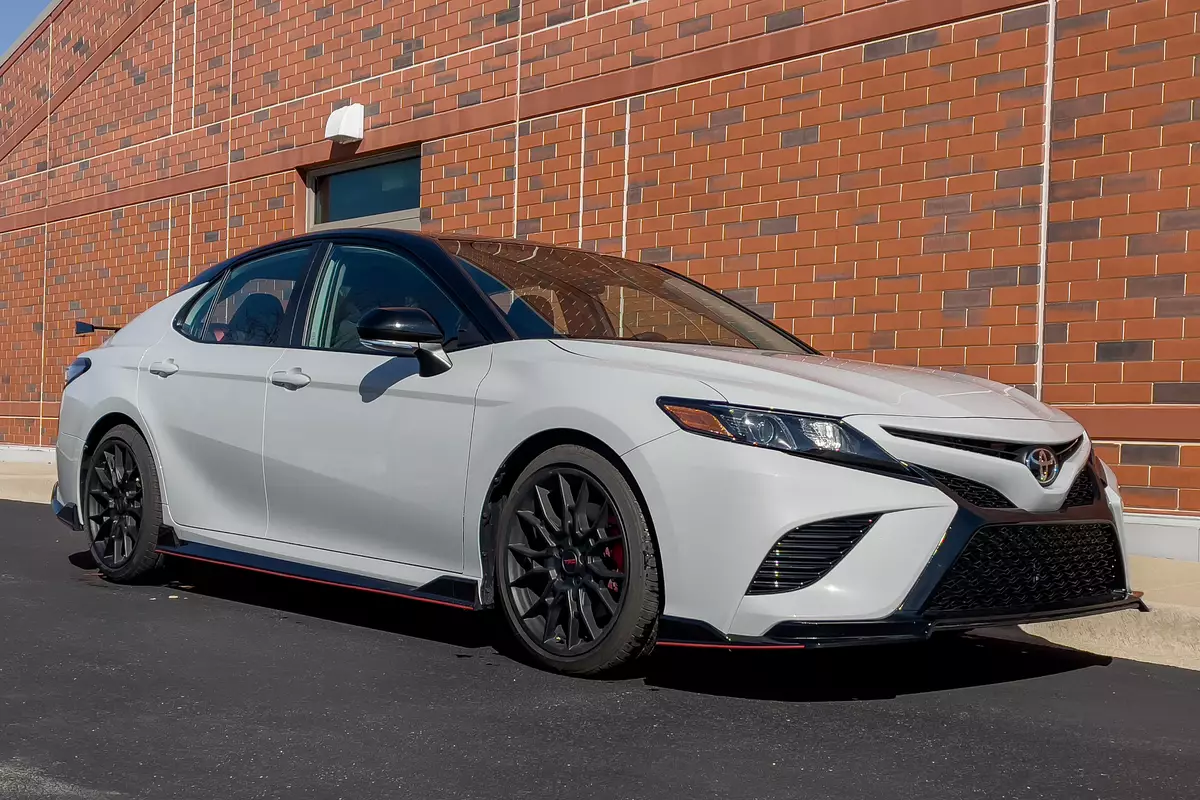



















On to what you do get: Transforming the Camry into the Camry TRD includes thicker underbody braces and stiffer springs that lower the car 0.6 inches. The front sway bar is 44% stiffer while the rear sway bar is 67% stiffer, and there are uniquely tuned shock absorbers; perhaps these added parts are why it’s not considerably lighter than the XSE. The front brakes are also larger — 12.9 inches with dual-piston calipers versus 12 inches and single-piston calipers — while lighter 19-inch wheels are wider (8.5 inches wide versus 8 inches) and result in less rotational mass and a wider track. To top it off, a throatier exhaust gives the V-6 a unique soundtrack that’s a joy to listen to with the windows down. A bunch of exterior add-ons make it look as racy as it handles, but that rear wing is just, uh, there.

The most convincing evidence that the Camry TRD is transformed is how each corner of the car better pulls its weight; the rear end tracks with the front as opposed to the non-TRD where the front end does most of the work. And when pushing hard, the inside tires still feel like they’re helping pull the car through the corner rather than giving up as the body rolls over — and all of this is with Michelin Primacy MXM4 all-season tires versus the available grippier summer tires. But now that the chassis is in such good order, it highlights how the Camry TRD is ready for a Sport “Plus” driving mode to one-up the existing Sport driving mode. A laggy accelerator doesn’t match the responsiveness of the chassis, and the transmission is slow to kick down when needed, and to upshift with the paddle shifters. It could be an even more killer package if the engine and transmission management were turned up another notch.
- ${price_badge()}
- ${ami_badge()}
- ${battery_badge()}${ev_report_link()}
- ${hot_car_badge()}
- ${award_badge()}
- ${cpo_badge()}
${price_badge_description}
${ami_badge_description}
The EV Battery Rating is based on this vehicle's current expected range relative to the vehicles expected range when new. ${battery_badge_text}
This vehicle is certified pre-owned, backed by a manufacturer warranty, and typically undergoes a rigorous multi-point inspection to ensure quality and reliability.
This vehicle is currently in high demand given its competitive price, desirable features, and overall condition, and may have a higher chance of selling quickly.
Shop the 2021 Toyota Camry near you


Is the Camry TRD Worth It?

Not having heated front seats and rear console climate vents is a deal-breaker for me living in the Chicago area and carrying kids in the backseat. The Camry TRD’s lack of a folding backseat is a bummer too. And I’m not sure the price is low enough considering it’s not a home run package with its powertrain lagginess and the base-trim interior quality. However, I think it’s somewhat forgivable considering some don’t need the features on that list, and the handling proficiency that comes with the features that have been added make the Camry TRD surprisingly good in ways most shoppers would never expect from a Camry. And when I look back, I did enjoy driving it and want to drive it again — next time with summer tires — which is mostly what matters from a performance package like Camry’s TRD.
More From Cars.com:
Related Video: 2018 Toyota Camry Review
Cars.com’s Editorial department is your source for automotive news and reviews. In line with Cars.com’s long-standing ethics policy, editors and reviewers don’t accept gifts or free trips from automakers. The Editorial department is independent of Cars.com’s advertising, sales and sponsored content departments.

Managing Editor Joe Bruzek’s 22 years of automotive experience doesn’t count the lifelong obsession that started as a kid admiring his dad’s 1964 Chevrolet Corvette — and continues to this day. Joe’s been an automotive journalist with Cars.com for 16 years, writing shopper-focused car reviews, news and research content. As Managing Editor, one of his favorite areas of focus is helping shoppers understand electric cars and how to determine whether going electric is right for them. In his free time, Joe maintains a love-hate relationship with his 1998 Pontiac Firebird Trans Am that he wishes would fix itself. LinkedIn: https://www.linkedin.com/in/joe-bruzek-2699b41b/
Featured stories
